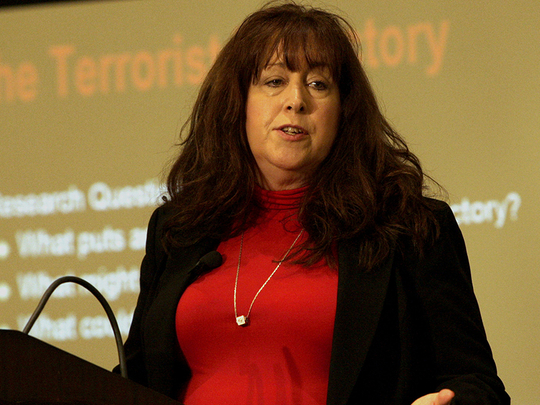
Abu Dhabi: A former radical turned counter-terrorist operative and expert gave important insights and details into what makes and starts the process of turning someone into a violent extremist during a talk in Abu Dhabi.
Mubin Shaikh, from Canada, says he became radicalised once he travelled to India and Pakistan for strict religious studies, during which he met members of the Taliban while in Pakistan, who convinced him of the need for violence to achieve political goals.
Listing the factors that lead to radicalisation, he said, “For the person who is becoming radicalised, some things jump out in their life. Geopolitics is one factor, they become very aware about political conflicts happening in the world. Deprivation and frustration is another, they may be living in a conflict zone, they can be living in a very difficult situation where they don’t have a proper home, and so their life is difficult.”
According to Shaikh, the lure of money and adventure also plays a role for some individuals seeking to join an extremist group for fighting.
For Shaikh, his extremism began to wane after the events of 9/11, which made him question his extremist beliefs and to reexamine and study his faith with a learned Islamic scholar.
“I was going to work and I heard a plane had flown into the building, I said Allahu Akbar. But I thought this is something strange, using the plane to go into the building. This did not make sense. So I realised I had to study my religion. I went to Syria in 2002 and in Syria I studied Arabic and Islamic studies, and with a very nice shaikh who showed me that my understanding of the verses [in the Quran] was wrong because I did not know Arabic, and the interpretation behind the Quran. After he showed and taught me this, I realised my wrong understanding of Islam,” he said.
Once he returned to Canada he was recruited by Canadian security agencies, and began his role in infiltrating and exposing extremist groups and individuals who were planning violence. His most notable infiltration was into the group known as the Toronto 18, an Al Qaida-inspired group that was planning to carry out multiple truck bombing attacks on various sites.
Dr Anne Speckhard, an expert on the psychological, cultural, and organisational aspects of terrorism, talked about four key foundations in place behind extremist groups after interviewing more than 400 individuals connected to terrorist and extremist groups.
“The first is the group, which by its nature is political and has a political agenda, and it’s going to use terrorism. There’s an ideology, which is never right because no matter what your cause is, it’s never right to intentionally attack civilians, but the ideology argues that it is right, and these days the ideology uses religion to argue for it,” she said.








